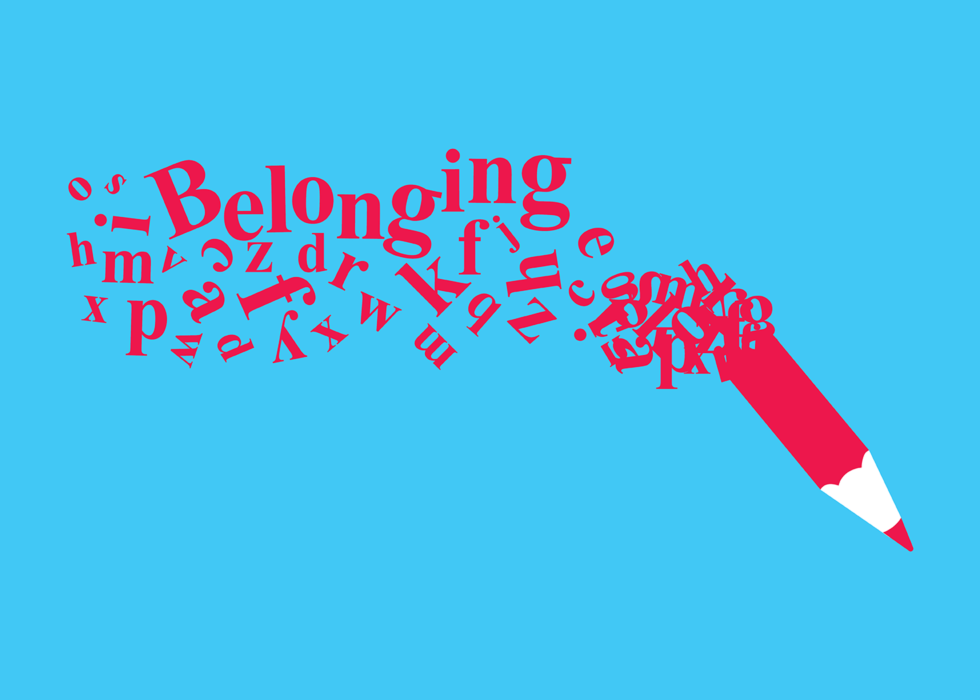Now that ISV’s Student Poetry Competition is again in full swing, it seems an ideal time to look at why poetry is important for children and what parents and can do to prompt an interest in poetry, writes Diane Bourke.
It is well established that poetry motivates children to read, develop their reading and fluency skills, and build vocabulary. However, for me, poetry is far more beneficial than this. Poetry is a place where language is pure pleasure, enabling us all to experiment with expression and sound.
Poetry fills the mind with new ways of communicating ideas, thoughts and feelings which – in the case of children – can convert to both emotional and academic gains.
Ask several different people to define poetry and you will probably receive several different answers. I like Percy Bysshe Shelley’s description, which suggests that poetry lifts the veil from the hidden beauty of the world and allows familiar objects to be seen afresh.
This definition recalls a time when my grandson and I were looking at the night sky and he announced ‘Granny, the moon has turned its light on’. A real wow moment for me and fortunately, at that time, I was fully present. Sadly, how often do we miss gems like these because we are preoccupied or exhausted?
Lines like these are poetry, and over time, could be turned into a poem if this were the pathway decided upon. I was able to convey this to my grandson, without labouring the point. We talked briefly about other things that turn their light on and laughed about the sun popping its head over the horizon each morning. I was helping him tap into his imagination by encouraging him to think about the new and unexpected relationships between words.
Poetry sparks ingenuity and inspires abstract thinking. It nurtures young people’s creativity and curiosity – abilities that are indispensable to the realisation of meaningful and fruitful lives. More than ever, in this high-tech environment, it is imperative for us to find ways for children to engage their imaginations.
Researchers make a strong case for the need for creativity in our lives. We need individuals who can think through questions in unpredicted ways, engaging in ‘possibility thinking’ to solve complex problems. Possibility thinking is permitting oneself to think of possibilities, moving away from the given to a new place of ‘it could be’. Poetry can create a framework for this to occur, to think unconventionally, and see the world differently.

In line with this thinking, we can turn to metaphors and similes, powerful literary techniques, often used in poetry. Both similes and metaphors make comparisons. The difference between them is that similes use the words ‘like’ and ‘as’ to compare things, whereas metaphors directly state a comparison.
William Wordsworth’s ‘I wandered lonely as a cloud’ is a simile as is Robert Burns’ ‘my love is like a red, red rose’. Sayings such as ‘slippery as an eel’ and ‘as sweet as sugar’ are also similes.
A metaphor, by contrast, is when one thing is described as something else. In Shakespeare’s Romeo and Juliet, Romeo proclaims ‘Juliet is the sun’. Everyday sayings like ‘life is a maze’ or ‘couch potato’ are also metaphors. Try making a list with your child each time you find a new one.
Remember, by encouraging metaphorical thinking in your child, you are helping them build new connections between objects, concepts and ideas, and helping them think more innovatively. As you read poetry together try discovering metaphors and similes in some of your favourites. These can also be added to the list.
There are many jokes about metaphors and similes which could also help your child think flexibly. Your older children might appreciate these. A favourite is ‘I met a girl called simile. I don’t know what I metaphor’.
If you want a fun way to introduce children to writing poetry, try the ‘I am’ poem, a type of personal poem in which children describe themselves through a series of prompts. Writing and sharing these are a wonderful way for children to express themselves and feel known.
The beginning of each line is already written by you and your child fills in the end by adding identifiable words, written, or spoken. The first line is: ‘I am’.
Children can, for example, write two unique characteristics about themselves. The following lines can be prompts such as:
‘I ponder’,
‘I dream’,
‘I wonder’,
‘I appreciate’, and so on.
Six lines are adequate, though more could be added. The poem finishes by a repeat of line one. Be bold and use sophisticated words which you explain to your child. Over time, these words will become part of their growing vocabulary.
An acrostic poem is another type of poem, ideal for introducing young children to writing poetry. Here, the first letters of each line spell out a word or phrase vertically that acts as the theme or message of the poem. Acrostic poems are very easy to write and can be about any subject.
Ken Nisbett (Poetry4kids.com) writes about Ice Cream:
I love every flavour
Cookies and cream
English toffee
Chocolate chip
Rocky Road
Even strawberry
And almond fudge
Mmmmmmm
Remember that poetry can be something you and your children bond over. Include some of your best-loved poems and poets into reading times, and they will start to connect those poems with you. One of our family favourites is Edward Lear’s ‘The Owl and the Pussy Cat’. This poem never fails to delight. It was read to me originally by my father and I can still recite it word for word. Hopefully, your favourites may become a recollection that your children will carry with them forever.
And please feel free to send any of your children’s masterpieces to our Poetry Competition. They will be welcomed.
Find out more about the Student Poetry Competition 2022.
Diane Bourke is a Project Manager at Independent Schools Victoria.

